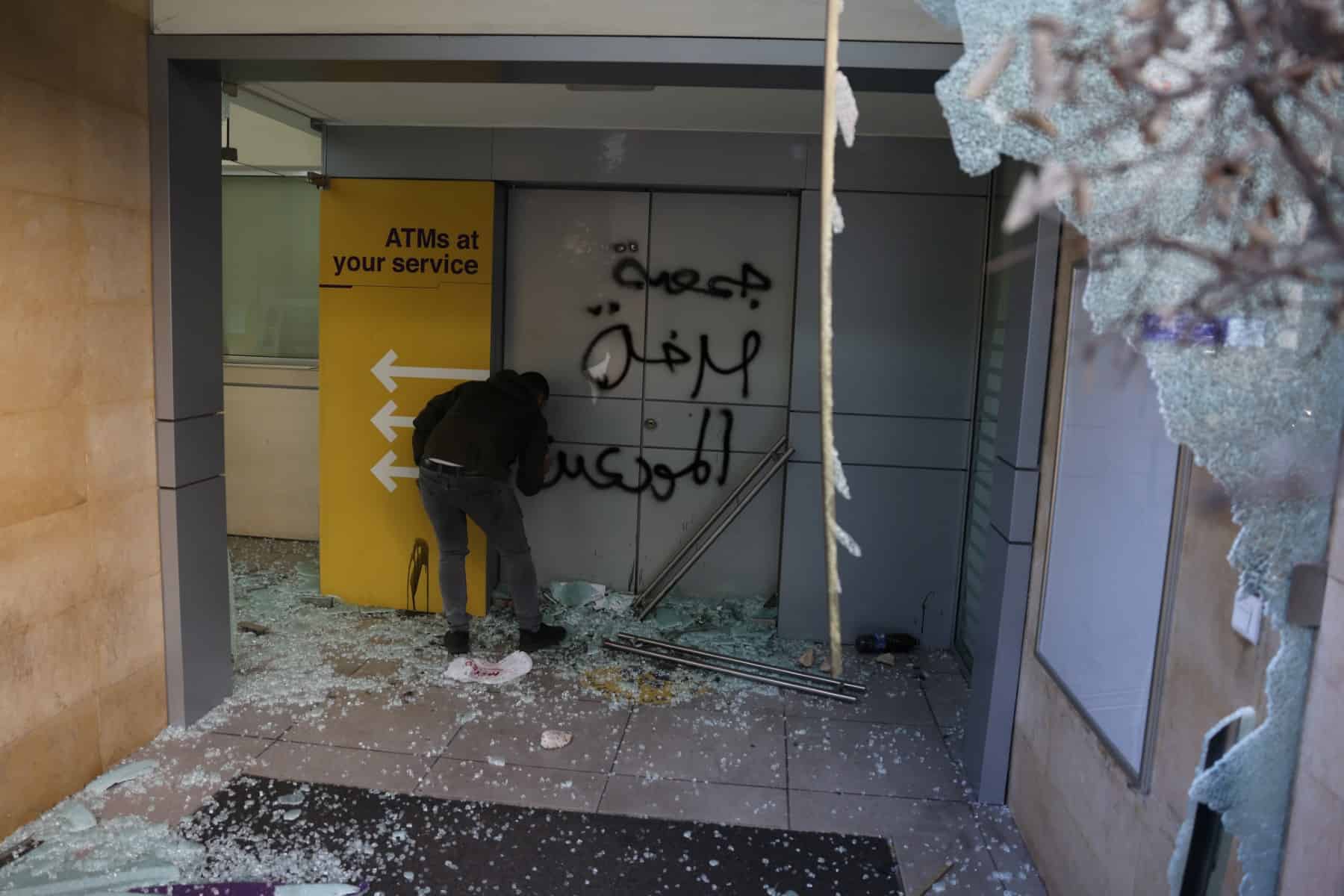Beirut, Lebanon – Dozens of angry demonstrators attacked several banks in Beirut on Thursday after the Lebanese pound hit a record low, AFP journalists said, amid a deepening economic crisis.
Lebanon’s cash-strapped banks have imposed strict restrictions on withdrawals, barring depositors from accessing their savings, especially those in US dollars.
The pound is trading at about 80,000 to the greenback on the black market versus 60,000 at the start of the month, according to exchange rate monitors.
On Thursday, around 50 protesters smashed the facades of four banks and burned car tires in the central Beirut neighborhood of Badaro, AFP journalists at the scene reported.
The attacks came after calls by the “Depositors’ Outcry Association”, a group that supports depositors’ attempts to withdraw their money.
“They stole, seized and looted our money three years ago,” said protester Pascal al-Raisi.
“There are owners of millions of dollars among us without even a penny in their pockets.
“There is no other solution. We will escalate until we regain our rights.”
Depositors have carried out similar attacks in recent months to demand access to their savings from banks, which have repeatedly closed for days.
This month, the Association of Banks in Lebanon declared an open-ended strike, saying the crisis was affecting the entire financial system.
Lebanon’s economic crisis has left many struggling to make ends meet in a country where poverty rates have reached 80 percent of the population, according to the United Nations.
The pound’s plunge has triggered a wave of price hikes including on fuel, food items and other basic goods.
Lebanon is being run by a caretaker government and is also without a president, as lawmakers have repeatedly failed to elect a successor to Michel Aoun, whose mandate expired at the end of October.








